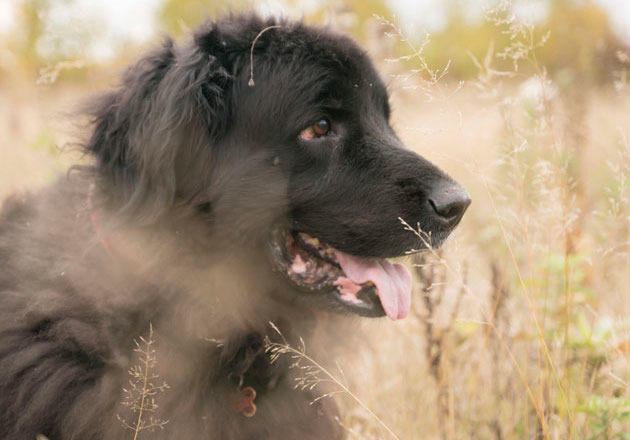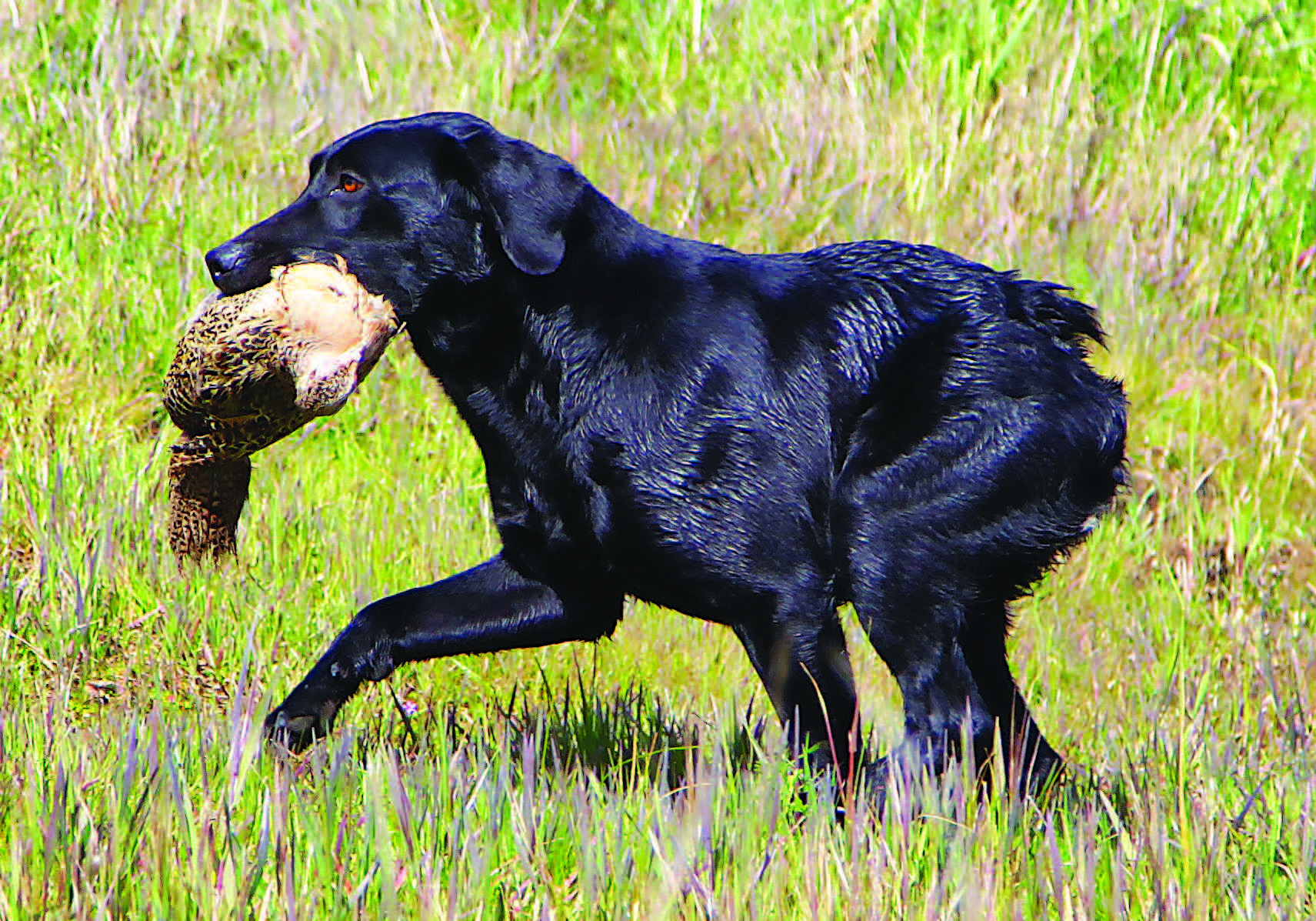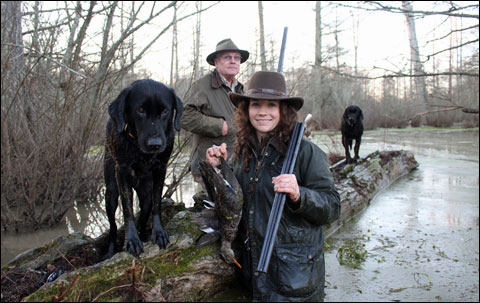From the 2007 May/June issue of Sporting Classics.
A bad dog will aggravate you to death and a good one will break your heart. That’s a hard lesson I learned not too long ago. I’ll skip the bad dogs, skip the blue heeler that could lay in the snow and gnaw off an extension cord, skip how I gave him to the REA linemen to test for hot wires. I’ll skip the Chessie bitch that would fetch the next blind’s ducks and try to drown any other retriever that might object. And also the snappy Lab that ended his career when he permanently scarred the buttocks of an aspirant porno queen. This happened, yes, and it cost my insurance company eight thousand bucks—a bargain of a dog bite, everybody said. I won’t tell you any of this, but I will tell you about Porgy.
She got the house and I got Porgy, a damned good deal.
Porgy. That was way up in Minnesota, a dozen years ago. He was gonna be Miss Judi’s and my love child. That’s what she figured, anyway. But as it turned out, she got the house and I got Porgy, a damned good deal. But all that came later.
Porgy was Newfoundland, or mostly so, from a smattering of golden retriever on his daddy’s side. I knew that the Lab and the golden and a bunch of other water breeds had sprung from Newfies, so I didn’t mind the dubious pedigree. They told me his grandsire had won a pulling contest when he nudged 4,000 pounds upon the ice. I couldn’t be sure about that, but I knew he was free. He was also half blind in his right eye, but I didn’t realize that for a year, until I caught him in the headlights and his good eye was green, the other yellow. By then it didn’t matter.
We drove down to Minneapolis to pick him up, Miss Judi and I. Halfway there, I stopped for gas. There was a liquor store next to the filling station and over by the dumpster was a pile of wooden boxes, you know, the shallow ones with dovetailed corners that good wine comes in. I threw one into the back seat and lined it with an extra shirt.
Seven weeks old and he would not fit. A ball of black fur, he looked more bear cub than pup. So the wine box would end up holding twelve boxes of duck loads, but ended up holding Porgy. Nose on my knee, his tail curled against Miss Judi’s leg, we rode home.
He would not leave my side. Riding in the pickup till he outgrew the cab, sleeping beneath our bed until one morning there came a great grunting, a knocking of elbows and knees, and I had to pull it apart so he could get out. He slept on the porch after that, on the mat that bore the last of my scent when I came into the house the final time each evening. Zero, ten below, it did not matter to Porgy.
Summertimes when we shaved him, he looked like a big goofy lab. Wintertimes, he was a bear. Summers and winters, he wore a bell at his collar so he would not frighten the neighbors. One hundred and forty-odd pounds full grown, he had a massive head, webbed paws big as doughnuts, and the soft intelligent eyes of a great ape.
Miss Judi loved him as much as I did, praised him in Norwegian, cussed him in Finn. We walked with the shotguns his first year and when I found a pond full of bluebills and stayed to shoot while she took him home, he backtracked half a mile when he heard my first shot. I had a duck dog after that.
But I also had so much more. We found a harness and broke him to pull. He’d drag the boat to the slough, retrieve the birds, pull the decoys and then drag the boat back uphill, though I never was able to get him to wrap the anchor strings.
There were other things we would not do. Too heavy to drag over the gunnels, he would not leap from the boat, but bark and whine till I rowed him to shore so he could work the birds from the bank. He would flush and retrieve grouse, but would never pick up a woodcock. Forty voice commands, a dozen hand signals, he’d carry the mail, firewood one stick at a time, and snowbound, he’d pull the groceries home on an L. L. Bean folding sled.
What freak of nature and breeding had produced this dog? I had no idea, but I looked him up. Some say Newfies came from the Great Pyrenees, brought to eastern Canada by Basque codfishermen in the 1500s. Others peg the breed much older, recalling “a black bear of a dog” traveling with Lief Eriksson in the Tenth Century. Wherever they came from, they would pull nets, retrieve lost fish, and if anybody fell overboard, fishermen would throw a Newfie at them. One captain’s journal recounts a Newfoundland lost at sea, recovered swimming after three days. Ashore, they pulled carts, guarded racks of drying cod, oft-times standing down hungry bears.
“Unless one has a child and a pond handy, there is little profit in keeping a Newfoundland.”
Lewis and Clark took a Newfoundland on their Voyage of Discovery and when Montana Indians stole him, they threatened war in order to get him back. The infamous Lord Byron bedded 250 women a year during several Italian excursions, but he penned his best-known poem in honor of his Newfie, dead of rabies at age six. Byron nursed him to the end—rabies be damned—and never got bit. Josh Billings, a mentor of Mark Twain, remarked, “Unless one has a child and a pond handy, there is little profit in keeping a Newfoundland.”
But there was profit in Porgy. Coons in the sweet corn, deer in the pea patch, no way. It was bacon, beans and kerosene in those days, the garden, fish from the lake and the deer I took from my woods each fall. If I had a deer down and could not find it, Porgy would. He’d pull it home and sleep beneath the meat-pole, exploding in baritone outrage whenever a fox or coyote ventured into the yard.
When winter clamped down and the snow piled to the windowsills, Porgy would pull the sled of corn to the deer yard, wait as animals leapt from the brush all around him, until I struggled to the hilltop to spread the feed. And then he would take the empty sled home and be waiting in the yard when I caught up with him the second time.
As you might imagine, Porgy and I worked out just fine. But I already told you Miss Judi and I didn’t. And when Porgy and I headed south and she did not, he got to missing a woman near-abouts as bad as I did. But he had better tastes than me. He would not let me dance with the local gals down at the beer joint, barking and circling, nipping my leg, not my partner’s, thank God. He didn’t have any time for the tattooed wonder I met online, but tried to like Miss Mary Ann, though he could not. She was one of those fire-walking women, you know the type who gather around beachfront and mountaintop fires, self-actualizing by walking barefoot through hot coals. There wasn’t much call for that in my neighborhood, so she walked off her considerable energy on dirt roads early mornings. Porgy would follow for the first half-mile. Then he would sit down and if Mary Ann would not turn around, then he would.
“Porgy, what in the hell’s the matter with you? Go walk with Mary Ann.”
And then he’d give me the same look he’d give whenever I asked him to find a deer that was still running. But when Susan and I took up together and she left and he walked around two days carrying one of her shoes, I knew I had finally gotten it right.
Of all his gifts, this was his greatest. Porgy went on to find more downed deer, and—too big for most gators—he was right handy in ricefield duck ponds. I even worked him on wild pigs. By then we was too arthritic for the chase, but still sound enough for the dragging harness. He passed his last days on the sunny porch as his hips gave out, his eyes gave out.
But his heart never did.
Living as I chose in remote locations, I doctored him as best I could, spending more money on Porgy than I ever did doctoring myself. And there was that last evening when he disappeared for five hours and then finally struggled from the weeds and lay at my feet. He put that massive head between his paws and did not look up.
I leaned over him and blew my breath into his nostrils. He snorted and blew back, and I did what I had to do.
“Oh Porgy! Oh Porgy! Oh No! Oh No!”
If the neighbors had seen it, they would have called 911. But there were no neighbors to call and 911 would not have come, just like the vet would not have come. So there was just an old man, crawling around a dead dog in the middle of the yard, bellering like a lost calf.
I rolled him in the tarp that had covered the last of the deer he had found, the deer he had hauled from the woods. I took the rope with which he had hauled them and trussed him like a sailor ready for burial at sea while I wept the bitterest of tears.
Some local boys helped me get him in the ground, not far from where he lay on the patio, when the fire crackled and the stories and drinks went around.
“Nawsuh, Mr. Pinckney, we ain’t gonna take your money. We know how you loved that dog.”
There would be calls of condolence, voicemails, e-mails, regular mail for weeks. Canada, Europe, from all across the U.S., from those who had seen him work and from those who had loved him.
I did not know any of that just yet, while we were still leaning on our shovels while the sea wind sighed and the surf swooshed the way it does after the tide change.
But I knew this much. I knew there was a great hole in my heart. And maybe this was good. But all around that hole was a hardness, crisp, nearly brittle, like the edge of a knife with too much temper.
And this was not good at all.
Cover photo: Thinkstock/tayfoon
 This marvelous collection features stories from some of America’s finest and most respected writers about every outdoorsman’s favorite and most loyal hunting partner: his dog. For the first time, the stories of acclaimed writers such as Richard Ford, Tom Brokaw, Howell Raines, Rick Bass, Sydney Lea, Jim Harrison, Tom McGuane, Phil Caputo, and Chris Camuto, come together in one collection.
This marvelous collection features stories from some of America’s finest and most respected writers about every outdoorsman’s favorite and most loyal hunting partner: his dog. For the first time, the stories of acclaimed writers such as Richard Ford, Tom Brokaw, Howell Raines, Rick Bass, Sydney Lea, Jim Harrison, Tom McGuane, Phil Caputo, and Chris Camuto, come together in one collection.
Hunters and non-hunters alike will recognize in these poignant tales the universal aspects of owning dogs: companionship, triumph, joy, forgiveness, and loss. The hunter’s outdoor spirit meets the writer’s passion for detail in these honest, fresh pieces of storytelling. Here are the days spent on the trail, shotgun in hand with Fido on point—the thrills and memories that fill the hearts of bird hunters. Here is the perfect gift for dog lovers, hunters, and bibliophiles of every makeup.
This is a delightful, handsome volume that captures the wild spirit of dogs and those who love them. Buy Now




